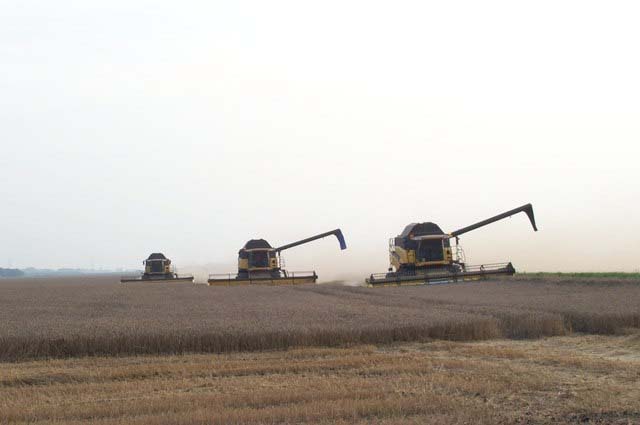
The Institute of Agricultural Engineers have said the government's £160m Agri-tech strategy 'still has some way to go' before engineering is properly recognised in the UK as a critical component to deliver sustainable and affordable food.
Agricultural technology in the UK is to receive a £160m investment following the launch of a new strategy to deliver sustainable and affordable food for future generations, according to the government.
£160million will be invested establishing Centres for Agricultural Innovation and an Agri-Tech Catalyst fund to improve the translation of research into practice. The NFU believes it is very significant that agricultural science and technology are finally being recognised right across Government as essential to the success of the farming industry and its ability to contribute to the economic growth of the UK.
Developed in partnership with industry, the Agricultural Technologies Strategy will 'ensure farmers and retailers' benefit from the strategy.
But Mark Kibblewhite, President Elect of the Institution of Agricultural Engineers, says, “This is a step in the right direction but the urgent strategic technological challenge is to translate existing and emergent science in to practical tools and processes for farmers. This is primarily a task for engineers and technologists. The balance of the strategy appears too weighted to supporting new science rather than its technological translation and this is disappointing. It should be doing even more to increase the opportunities for engineers working outside the agriculture sector to bring their knowledge and skills to engineering for agriculture and bring this strategic sector in to the ‘mainstream’ of UK engineering, while recognising the distinct and specialist role of the agricultural engineering discipline itself.”
“Over many years there has been a general decline in investment for research and education infrastructure for agricultural engineering. We hope the strategy represents a fresh start. It offers useful funding to help businesses and researchers to work together so that new, innovative ideas for tools and processes reach the ready-for-implementation stage. We are pleased that the Government is considering establishing a Centre for Agricultural Engineering and we look forward to assisting its early development,” he added.
A key challenge is to develop opportunities for education, research and training in engineering for agriculture. The Institution is optimistic that the strategy can encourage better appreciation of the exciting and cutting-edge career opportunities in engineering for agriculture and it looks forward to contributing to this objective in its role as the professional institution of choice for engineers in the land-based industry sector.
With the demand for food rising rapidly worldwide, the strategy also aims to make the UK a world leader in addressing global food security issues.
Agri-tech is a well-established and important UK sector. The entire agri-food supply chain, from agriculture to final retailing and catering, is estimated to contribute £96 billion to the economy and employ 3.8 million people.
"Some of the biggest brands in farming and food are based in the UK. We have a world class science and research community and our institutes and universities are at the forefront of agricultural research," said Universities and Science Minister David Willetts.
"To get ahead in the global race, this strategy sets out how we can ensure that we turn our world-beating agricultural science and research into world-beating products and services.
"This Agricultural Technologies Strategy follows the recent plans for automotive, construction, aerospace and other key sectors to secure sustainable future growth in the economy."
Defra Minister for Science Lord De Mauley said: "We face a global challenge to feed the rapidly increasing population in a way which is affordable and sustainable."
